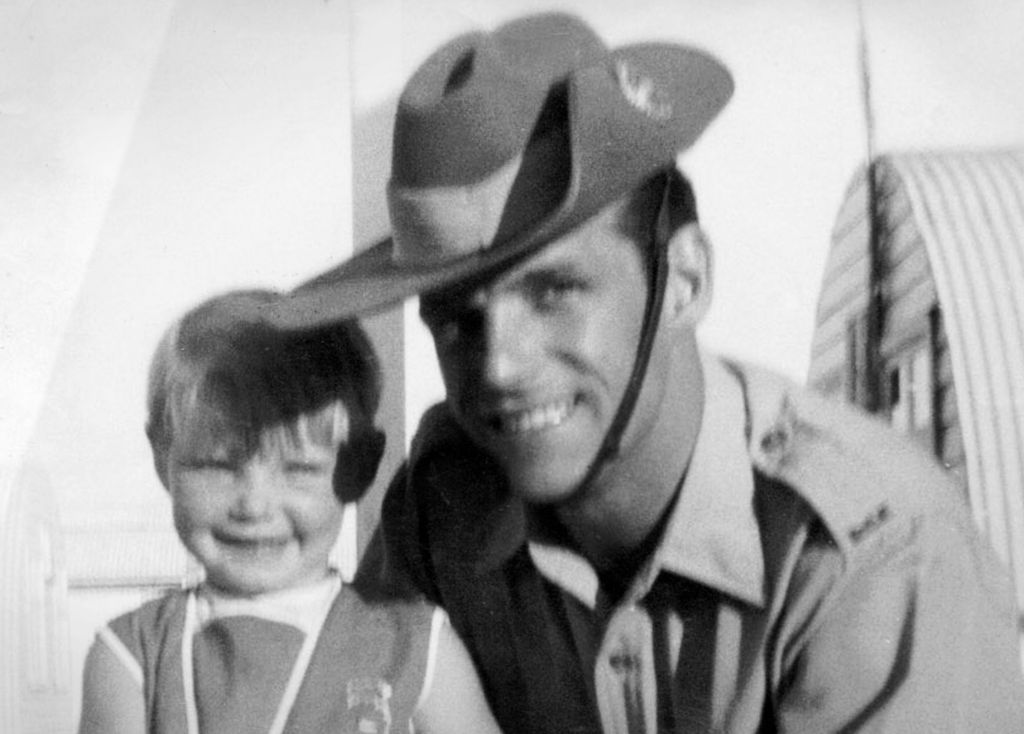Cheryl Grimmer: Family urges Australia to review toddler's 1970 disappearance
- Published

The family of a British child who disappeared in Australia 53 years ago have written to the New South Wales attorney general urging him to re-examine the case.
Three-year-old Cheryl Grimmer vanished from a beach near Wollongong in 1970.
Despite a huge police search no trace of her has ever been found, but a 2011 inquest concluded she had died.
The case against a man who allegedly admitted in 1971 to her abduction and murder collapsed in 2019.
A Supreme Court judge ruled that a confession he allegedly made as a teenager came in a police interview that did not follow guidelines for questioning minors, and could not be used as evidence.
Police have refused to say publicly if the man - who pleaded not guilty and cannot be named for legal reasons - remains a suspect.
Previous Attorney General Mark Speakman described the collapse of the 2019 trial as the "end of the road" in one of Australia's most high-profile mysteries.
"I don't want any other family to go through what our family has been through. I'm angry," Cheryl's brother Ricki told the BBC's Jon Kay at the time, for the podcast Fairy Meadow.
But Australian police continued to investigate, and in 2020 the NSW government increased its reward for information to A$1m (£540,000; $680,000).
Now the Grimmer family have sent a letter to Mr Speakman's successor, Michael Daley, asking him to look again at the judge's decision. The BBC has approached Mr Daley's office for comment.
The Grimmer family had only just moved to Australia from the UK when Cheryl disappeared. She was last seen in showers near the beach, where she had spent the afternoon with her mother and three older brothers.
Witnesses at the time reported seeing an unknown male carrying a child wrapped in a towel towards the beach car park.
By Jon Kay, host of the BBC true-crime podcast Fairy Meadow
Cheryl Grimmer's family are determined to get her case back into court.
Fifty-three years after she disappeared, her brother Ricki still devotes hours every day to what he calls his campaign for justice. Researching, emailing, cold-calling anyone who he thinks might be able to help.
Ricki has told me with heart-breaking honesty that he remains "haunted" by what happened to his sister. He says he will not rest until he feels he has achieved justice for her.
Cheryl vanished from the changing rooms at Fairy Meadow when Ricki was looking after her. He was only seven at the time.
The family believes that the recent change in state government in New South Wales - and the appointment of a new attorney general - might create an opportunity for the case to be examined and reviewed with fresh eyes.
In dismissing the 2019 case, Justice Robert Allan Hulme said the teenage suspect had no guardian or lawyer present during the 1971 police interview.
He described the boy as of "low average intelligence" and "more vulnerable than the average 17-year-old as a result of his disturbed upbringing".
But the Grimmer family say that decision gave no consideration to "the victim of the crime", and describe the omission of Cheryl's name from the judgement as "something that sickens the family".
"I would suggest that this sits very awkwardly against Australia's obligations under human rights instruments," says the letter signed by Michael Grimmer, Cheryl's cousin.
The family says details in the confession were "corroborated during a 2016-17 reinvestigation".
The letter calls on Attorney General Daley to allow an application to the NSW Supreme Court for a fresh inquest, and to lift media restrictions preventing the previous suspect's name being published to prompt other possible witnesses to come forward.
A spokesperson confirmed the attorney general had received the letter, and it was being considered.
You can stream or download the Fairy Meadow podcast on BBC Sounds.